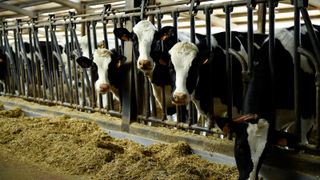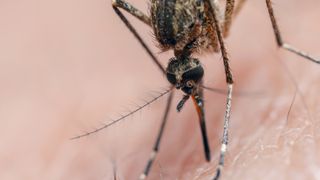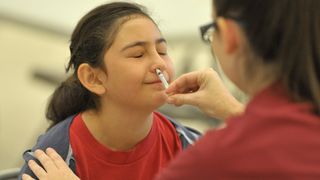Virus

A virus is defined as any of a various number of submicroscopic parasites that can infect any animal, plant or bacteria and often lead to very serious or even deadly diseases. A virus consists of a core of RNA or DNA, generally surrounded by a protein, lipid or glycoprotein coat, or some combination of the three. No virus can replicate without the help of a host cell, and though they can be spread, viruses lack the ability of self-reproduction and are not always considered to be living organisms in the regular sense.Some of the most common or best known viruses include the human immunodeficiency virus (HIV), which is the virus that causes AIDS, the herpes simplex virus, which causes cold sores, smallpox, multiple sclerosis, and the human papilloma virus, now believed to be a leading cause of cervical cancer in adult women. The common human cold is also caused by a virus.Since a great deal of mystery still surrounds the origins of most modern viruses, ways to cure these viruses and the diseases they cause are still in the very early stages of development.
Explore Viruses, Infections & Disease
Latest about Viruses, Infections & Disease

Is it COVID or the flu? At-home tests can look for both viruses at once
By Julie Sullivan, Wilbur Lam published
A fever and a nasty cough can be symptoms of a range of respiratory illnesses. An antigen test that narrows down the culprits can speed up diagnosis and recovery.

Parasitic worms cause terrible diseases — could the viruses they carry be to blame?
By Rohini Subrahmanyam published
Roundworms harbor viruses, which could be responsible for these parasites' painful symptoms in humans, scientists theorize.

Toothbrushes and showerheads are teeming with viruses unknown to science, study shows
By Ben Turner published
Scientists identified more than 600 viruses in samples taken from bathrooms in the United States. The viruses infect bacteria — not people — and scientists say they may provide more benefits than causes for concern.

Flu shot lowers hospitalization risk by 35% in vulnerable groups, data hint
By Nicoletta Lanese published
Data from the Southern Hemisphere hint that this year's flu shot lowers the risk of hospitalization among vulnerable demographics.

Flu shots have changed this year — here's why
By Emily Cooke published
Unlike past flu shots, flu vaccines for the 2024-2025 season don't contain the "Yamagata lineage" of influenza viruses because evidence suggests that type of flu no longer exists.

Source of person's recent bird flu case remains a mystery — and experts say that's concerning
By Kamal Nahas last updated
The latest human case of bird flu in the U.S. occurred in a patient with no reported exposure to affected animals, sparking questions over whether the virus is spreading between people. Experts say that's unlikely but argue the case raises other concerns.

New self-swab HPV test is an alternative to Pap smears. Here's how it works.
By Julie Goldenberg published
There's a new way to screen for high-risk HPV, a viral infection that can lead to cervical cancer. This alternative method of collecting samples for cervical cancer screening doesn't require a speculum.

New York resident dies of eastern equine encephalitis — what is it?
By Nicoletta Lanese last updated
Recent cases of a viral illness nicknamed "triple E" have occurred in New England. Here's what you should know about the disease.

At-home flu vaccine approved by FDA — what to know
By Emily Cooke published
People could previously get the nasal spray flu vaccine, called FluMist, from a health care provider, but now they can administer it themselves.

Saline nose drops may shorten colds and cut transmission, trial hints
By Michael Schubert published
Giving children saline nose drops at the start of a cold may shorten its duration and reduce the likelihood that they will pass the illness to others, a study hints. But it has some caveats.
Sign up for the Live Science daily newsletter now
Get the world’s most fascinating discoveries delivered straight to your inbox.
